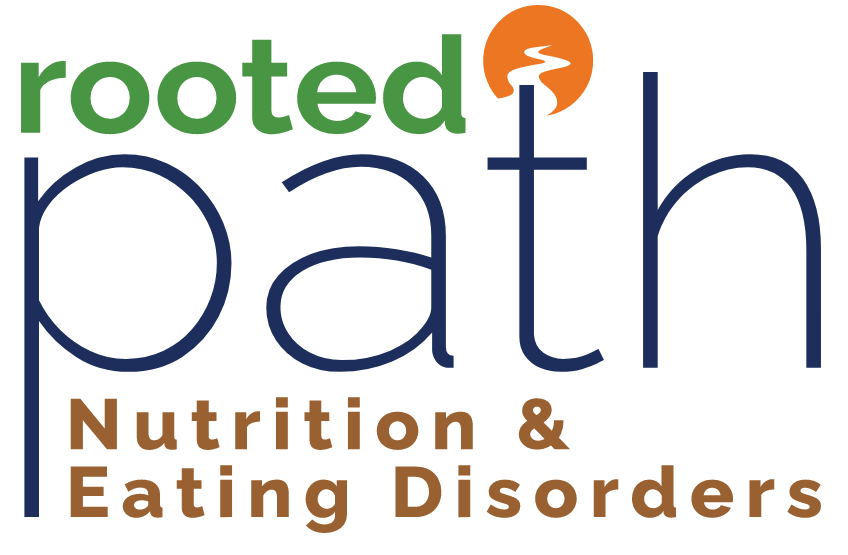Have you ever wondered why someone develops an eating disorder?
Eating disorders are complex mental health conditions that have significant physical, psychological, and emotional impacts on individuals who suffer from them. This article aims to delve into the origins, manifestations, and impacts of eating disorders, shedding light on an illness that affects millions of people worldwide.
Origins
The exact cause of eating disorders is not fully understood and is different for every person. Eating disorders often stem from a combination of genetic, environmental, and psychological factors.
Genetic Factors:
Those with a family history of eating disorders or other mental health issues are more susceptible to eating disorders. Certain genetic markers may contribute to a person’s vulnerability to developing an eating disorder when exposed to specific environmental triggers.
Psychological Factors:
Low self-esteem, perfectionism, anxiety, depression, poor quality friendships/relationships, or a history of trauma are all factors that can significantly contribute to the onset of an eating disorder. Individuals may also use disordered eating behaviors as a coping mechanism to stressors, or as a way to feel they have control over something in their lives.
Environmental Factors:
Cultural influences, societal pressures, and the media’s portrayal of beauty and thinness are significant factors in the development of eating disorders. Societal norms and expectations regarding body image and weight often contribute to a person’s dissatisfaction with their own body.
The rising emphasis on health and wellness can also inadvertently contribute to the development of eating disorders. The pursuit of an idealized (and often unrealistic) image of health, fueled by fitness trends, “clean eating” movements, fad-diets, and inconsistent messaging on social media, can lead individuals to adopt extreme dietary practices in the name of health.
Manifestations
Eating disorders manifest in various ways, each with distinct characteristics and symptoms. Below are examples of characteristics that a person with an eating disorder may exhibit:
- Severe food restriction (whether it be all food or certain food groups).
- An intense fear of gaining weight / distorted body image.
- An obsession with eating “healthy” or “clean” (i.e. orthorexia).
- Ranking foods as “good” or “bad”, “healthy” or “unhealthy.”
- Binge eating – consuming large amounts of food quickly in one sitting.
- Compensatory behaviors such as forced vomiting, excessive exercise, or fasting.
- Feeling out of control with food.
- Feelings of shame, guilt, and distress after eating.
- Ranking one’s day as good or bad based on eating patterns/choices.
- Rigidity around food choices (extremely selective eating, avoiding certain foods, textures, and/or smells).
- Taking diet pills or using other methods to suppress one’s appetite.
- Spending a significant amount of time counting calories or reading food labels.
Impacts
Eating disorders have consequences that extend beyond physical health. The impacts can be devastating, affecting a person’s mental, emotional, and social well-being.
Physical Health Impacts:
Eating disorders can lead to severe physical health issues, including malnutrition, electrolyte imbalances, digestive problems, cardiovascular issues, bone loss, and hormonal disruptions. In severe cases, eating disorders can be life-threatening. According to a study from 2022, approximately 10,200 people die from eating disorders every year in the United States (~1 death every 52 minutes!).
Mental & Emotional Health Impacts
Eating disorders significantly affect mental and emotional well-being. People with eating disorders often experience depression, anxiety, suicidal ideation, and a diminished quality of life.
The constant preoccupation with food, weight, and appearance can consume their thoughts, affecting their ability to concentrate and engage in daily activities (ie. work, school, hobbies, maintain friendships and/or relationships etc). Some people describe their life as feeling “small” as they don’t have time or energy to think about anything else.
Social Impacts:
Eating disorders can strain relationships and isolate individuals from their friends and loved ones. The secrecy and shame associated with disordered eating can lead to significant social withdrawal. It often becomes challenging for the person to seek help and support.
Long-Term Consequences
If left untreated, eating disorders can have lasting effects on a person’s health, even after recovery. Chronic physical and mental health issues can persist including macro- and micronutrient deficiencies; damage to the digestive system such as gastroparesis, stomach ulcers, intestinal bleeding, and esophageal rupture; osteoporosis; infertility; chronic fatigue or pain; diabetes; and kidney or liver failure. Any one of these issues can impact the person’s overall quality of life.
Final Thoughts
Eating disorders are complex conditions that arise from a combination of genetic, environmental, and psychological factors. They manifest in various ways, each with its unique set of symptoms and characteristics.
Regardless of how mild or severe these symptoms are, early intervention significantly improves the chances of successful treatment. If you or someone you know is struggling with an eating disorder, the providers at Rooted Path Nutrition are here to help! You are so much more than your eating disorder – we take a personalized approach (no cookie-cutter, one-size-fits-all methods here) to meet you wherever you are in your unique journey with food, your body, and your health.

